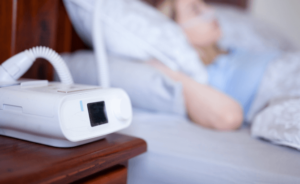Medical Device Recalls and Defects
Thousands of people are hurt or killed each year because of recalled or defective medical devices, including implants, stents, and sleep apnea machines. If you or someone you love has been injured due to a faulty medical device, you may be entitled to financial compensation.
Why Take Legal Action?
By filing a medical device lawsuit, you can pursue financial compensation and justice from the companies that caused you or a loved one harm.
Results Secured
- $1.4 million for a woman who suffered chronic pelvic pain from a migrating Essure® birth control device and had to get her fallopian tubes removed
- $820,000 for a woman in Georgia who sustained a thigh fracture from a hip replacement device
- $800,000 for an Arkansas woman with internal bleeding, chronic pain, and other injuries from recalled hernia mesh
Medical Device Recalls

Consumers should be able to expect that the medical devices doctors implant in their bodies or use to improve their health are safe and free from defects. But sadly, that is not always the case.
The U.S. Food and Drug Administration (FDA) says it receives hundreds of thousands of reports yearly of medical devices leading to severe injuries and even death.
According to FDA data, over the past ten years, more than 80,000 deaths and nearly 2 million injuries have been related to medical devices.
Many but not all defective medical devices end up as part of a recall. Sometimes just a single device malfunctions and causes serious adverse health consequences.
Device manufacturers can voluntarily issue recalls and remove a specific medical device from the market. In other cases, the FDA can request that a company recall any defective products.
If you’ve been injured by a defective medical device, reach out to LawFirm.com today for a free case review.
3 Types of FDA Recalls
The FDA classifies product recalls into 3 categories:
- Class I recall: There is a reasonable probability that the product will cause serious health problems or death. This is the most serious type of recall. Products such as pacemakers and lifesaving drugs are in this category.
- Class II recall: The product may cause temporary or reversible health problems, but the likelihood of serious injury is unlikely. Most recalls fall in this category. Medical implants such as knees or hips are in this category.
- Class III recall: The product is not likely to cause health problems.
A medical device maker or the FDA can also issue a medical device safety alert when a product presents an unreasonable risk of harm. Sometimes these alerts are considered recalls.
The top 4 causes of medical device recalls in the U.S. are:
- Software issues
- Labeling errors
- Quality issues
- Sterility
The fact that a manufacturer recalled a medical device does not guarantee that a person will recover money in a lawsuit.
By recalling a device, the manufacturer is admitting that there is some problem with its product.
However, a recall is one piece of evidence that a defective medical device attorney can use to build and strengthen a case.
If you or a loved one have been harmed by a defective medical device, LawFirm.com can help. Contact one of our trusted team members today to find out if you are eligible for compensation.
Filing a Medical Device Lawsuit


A medical device lawsuit is a way for people injured by a recalled product to take legal action and seek compensation for their medical bills and related expenses.
These lawsuits, which fall under the umbrella of product liability, are also a way for people to hold negligent medical device manufacturers accountable.
Like in a standard product liability lawsuit, medical device lawsuits seek to hold device makers liable for:
- Design defects
- Failure to warn of dangers associated with a device
- Manufacturing defects
In many cases, patients would not have agreed to use the medical device if they had known about the health hazards ahead of time.
Medical device lawsuits have been on the rise recently, with tens of thousands of cases filed against big pharmaceutical companies and other manufacturers annually in the United States.
There is often evidence that the manufacturer knew about the product’s hazards but failed to warn consumers or remove the product from the market.
These complicated cases are best handled by attorneys specializing in this area of the law. One of the worst mistakes people can make is to sign off on a settlement and then find out later that they could have gotten additional compensation.
If a medical device — recalled or not — caused you serious injury, a defective medical device attorney may be able to help you obtain financial compensation for your injuries. Contact our team at LawFirm.com for a free consultation.
Who Can File a Defective Medical Device Lawsuit?
Because you are reading this article, you are probably wondering whether you or a loved one is eligible to file a lawsuit over a defective device.
People often file medical device lawsuits when a device:
- Causes permanent impairment or death
- Leads to new health problems
- Worsens an existing condition
If a medical device has caused you harm, you may be able to file a defective medical device lawsuit against any responsible parties. This can include product makers, device distributors, doctors, and hospitals.
Manufacturers are obligated to ensure that their products are reasonably safe and free from defects. However, when companies take shortcuts to save money, innocent people pay the price. This is unacceptable.
If you have suffered an injury because of a faulty medical device and are ready to take the first step in seeking legal justice, contact us for a free, no-obligation case review.
Examples of Medical Device Lawsuits
Some types of medical device lawsuits that our network of product recall attorneys have experience with include:
- Breast implants
- Exactech® ankle, knee, and hip replacements
- Hernia mesh
- Insulin pumps
- Paragard® IUD
- Surgical staples
- Transvaginal mesh


Indeed, this is not a complete list. The World Health Organization estimates that there are about 2 million different types of medical devices available around the globe.
Each one has the potential to fail and cause injury, especially when it has not been correctly made or tested.
Medical device lawsuits can provide compensation for:
- Medical expenses
- Lost wages
- Pain and suffering
- Wrongful death damages
The bottom line is that companies are responsible for ensuring that their products are reasonably safe. When companies rush products to the market, placing profits above the well-being of consumers, they should pay the price for their negligence.
Call our team at LawFirm.com at (888) 726-9160 for a free, no-risk review of your case.
How Much Are Defective Medical Device Settlements Worth?
It is difficult to say how much a specific medical device settlement is worth. All cases are unique. And settlements are often confidential, so it can be challenging to gauge a case’s value.
The amount of a defective medical device settlement typically depends on several factors, including the age of the patient, severity of the injury, and amount of permanent impairment.
It is not unusual for settlements in these cases to hit $1 million or more.
Here is a look at some reported defective medical device settlements:
- $1.4 million for a defective surgery scalpel
- $1.5 million for a wrongful death case
- $5.1 million for a defective surgical tool
In multidistrict litigation (MDL) cases, companies offer one lump-sum payment to settle hundreds or even thousands of claims. Some device makers have paid billions of dollars to settle these cases.
It is important to note that medical device recall attorneys generally favor settlements over taking a case to trial. This is because it can take years for a lawsuit to make its way to a courtroom. And trials are risky, even when you have a strong case.
Settlements provide clients quick access to the money they need for critical healthcare costs and other expenses.
Ready to take the first step toward pursuing a defective medical device settlement? Reach out to our team for help.
What Defective Medical Device Lawyers Are the Best?
The defective medical device lawyers best suited to handle complicated defect and recall cases are those who work for law firms with the resources to take on powerful pharmaceutical companies.
These companies, known collectively as Big Pharma, make billions of dollars yearly and have teams of attorneys that aggressively defend each lawsuit. If a company admits a product is defective and pays out on one lawsuit, they run the risk of paying additional claims.
It is not unusual for medical device makers to blame the patient for an injury. For example, the company might allege that the person misused the device and caused their own injury.
Many people mistakenly believe that defective medical device lawsuits are open and shut cases, especially in the case of a recall. However, proving that a device was faulty or that a manufacturer failed to warn of the risks is not enough. To be successful, you must prove the device caused your injury.
When you are interviewing medical device law firms to handle your case, you should look for a firm with these qualities:
- Experience: Law firms that handle medical device cases regularly are best positioned to obtain maximum compensation for clients.
- National reach: Law firms with a nationwide reach can help clients across the country. Local firms may not have the resources to handle a medical device lawsuit successfully.
- No upfront fees: Firms that take cases on a contingency basis take on the financial risk of a case. There are no upfront or out-of-pocket costs. You only pay if the firm recovers money for you through a settlement or verdict.
- Proven track record: Ask potential law firms about their results in cases like yours.
Finding a Defective Medical Device Lawyer Near Me
Many personal injury attorneys will tell you they can handle your defective medical device case. However, while they may be able to file a lawsuit on your behalf, they may not have the resources to obtain maximum compensation — or any compensation — for you and your family.
LawFirm.com has assembled a network of defective medical device law firms and lawyers with the skills and resources needed to maximize awards in these cases.
These firms also understand the emotional toll these cases take. They pride themselves on building strong attorney-client relationships and providing clients with the emotional support they need during this trying time.
When you are ready to get help with your situation, reach out to our team at LawFirm.com. One of our representatives will provide you with a free case review and then connect you with a top medical device recall lawyer if you qualify for a lawsuit.
FAQs About Medical Device Recalls and Defects
What triggers a medical device recall?
Medical devices can be recalled for various reasons ranging from life-threatening glitches of a particular brand of pacemaker to labeling changes affecting products not implanted inside the body.
Usually, a recall begins with doctors or patients identifying a safety or manufacturing flaw. Then, these issues are reported directly to the product manufacturer or the FDA through its Manufacturer and User Facility Device Experience (MAUDE) database.
The manufacturer typically investigates and considers different factors like how many of the devices are out in the world, the severity of impact, and the likelihood of a malfunction.
The company will issue a recall if there are enough reports or serious adverse events such as patient deaths.
Can the FDA recall medical devices?
Some people believe that the FDA can recall a medical device or dangerous drug, but that is not how the recall process works.
Most times, manufacturers voluntarily pull defective products from the marketplace. However, when a manufacturer fails to recall a device that poses a health risk on its own, the FDA can order the company to pull the device from the market.
“Almost all recalls are conducted on a voluntary basis by the manufacturer,” according to the agency.
What happens when a medical device is recalled?
When a manufacturer initiates a product recall, it notifies the FDA. The agency then classifies the recall as a Class I, Class II, or Class III recall based on the risk of harm the device poses to a patient. A Class I recall is the most serious.
Next, the recalling manufacturer notifies doctors, hospitals, and other suppliers. The company will typically not alert patients unless the product was sold directly to them. The physician or hospital bears the burden of telling patients of the recall and explaining the manufacturer’s recommendations.
The FDA also posts information about the recall in its Medical Device Recall Database.
The recalling firm will issue a correction or removal. Sometimes a recalled device must be adjusted or fixed.
When an implanted device like an artificial knee or hip is recalled, the device does not always need to be removed. Instead, patients should discuss with their physicians the pros and cons of removing or leaving the device in place.
LawFirm.com makes it easier to take legal action. We have information, lawsuit guides, and breaking news about drugs, products, and other issues that could affect you.
- Statista. “Number of major causes for medical device recalls in the U.S. as of Q2 2019.” Retrieved from: https://www.statista.com/statistics/618253/share-of-major-causes-for-medical-device-recalls-in-us/. Accessed on September 16, 2022.
- The Regulatory Review. “Addressing the Medical Device Safety Crisis.” Retrieved from: https://www.theregreview.org/2021/10/27/salazar-addressing-medical-device-safety-crisis/. Accessed on September 15, 2022.
- U.S. Food and Drug Administration. “Medical Device Reporting (MDR): How to Report Medical Device Problems.” Retrieved from: https://www.fda.gov/medical-devices/medical-device-safety/medical-device-reporting-mdr-how-report-medical-device-problems. Accessed on September 15, 2022.
- U.S. Food and Drug Administration. “Recalls Background and Definitions.” Retrieved from: https://www.fda.gov/safety/industry-guidance-recalls/recalls-background-and-definitions. Accessed on September 16, 2022.
- U.S. Food and Drug Administration. “Recalls, Corrections and Removals (Devices).” Retrieved from: https://www.fda.gov/medical-devices/postmarket-requirements-devices/recalls-corrections-and-removals-devices. Accessed on September 20, 2022.
- U.S. Food and Drug Administration. “What is a Medical Device Recall?” Retrieved from: https://www.fda.gov/medical-devices/medical-device-recalls/what-medical-device-recall. Accessed on September 20, 2022.
- World Health Organization. “Medical devices.” Retrieved from: https://www.who.int/health-topics/medical-devices#tab=tab_1. Accessed on September 15, 2022.


